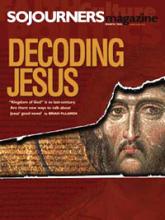Three years ago the United States invaded Iraq and quickly toppled the brutal regime of Saddam Hussein. The Bush administration justified this act as part of the “war on terrorism,” claiming that the Iraqi government both conspired with al Qaeda, which had attacked the U.S. nearly two years earlier, and posed an imminent threat via weapons of mass destruction. To date, neither of these allegations has been sustained, and the real mastermind behind the terrorist attacks, Osama bin Laden, remains at large.
In the aftermath of 9/11, a number of Christian peacemakers raised questions about the appropriateness of a “war” approach to dealing with terrorism. These concerns appear now to be spot-on. Of course, such criticisms of war can be expected from those Christians who seek to follow nonviolently the biblical call to work for justice and peace. But some prominent proponents of Christian nonviolence have considered supporting the specific alternative of a “police” approach to dealing with terrorists. As a Christian ethicist with previous experience in law enforcement, I find this curious—because little prior work has been done to explore what such a model might look like and entail, especially with regard to the use of force.
In the January-February 2002 issue of Sojourners, Jim Wallis labeled the terrorist attacks a “crime against humanity” rather than an act of war and suggested exploring a “global police,” rather than war, as a means of defending innocent lives and preventing future threats. Similarly, Christian theologian Stanley Hauerwas, in a November 2001 interview with Wallis, indicated that he “would certainly like to start envisioning the possibility of that kind of police force,” because such an operation would be a less violent option than war.
Read the Full Article

